Marie-Thérèse Chouteau was one of the founders of the city of St. Louis, Missouri. She was a powerful and unusual woman, existing both inside the Franco-Spanish colonial system and outside it, depending on what suited her needs. The way she obtained her inheritance from her not-husband screams to be turned into an adventure, and she herself makes a complex and compelling NPC!
This post is brought to you by beloved Patreon backer Justin Moor. Thanks for helping keep the lights on! If you want to help keep this blog going alongside Justin, head over to the Patreon page – and thank you!
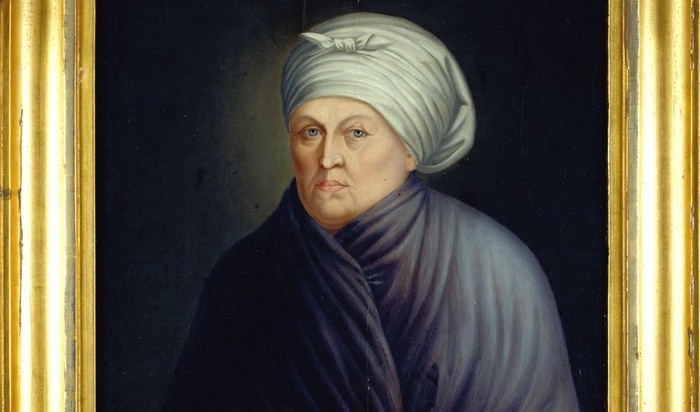
Chouteau was born in New Orleans in 1733, only fifteen years after the city was founded as a French colonial outpost at the mouth of the Mississippi River. She grew up rough and was married off at age fifteen to René Chouteau, a baker and tavern keeper. They only stayed together a few years before he abandoned her and returned to France. In her mid-twenties, she met a young merchant named Pierre Laclède and they fell in love. Marriage was impossible. France was very Catholic at the time and divorce forbidden. So instead they just lived together and acted like husband and wife. They had four kids, all baptized in New Orleans with René listed as the father – even though he was on a different continent and had been for years. Chouteau and Laclède maintained the charade their whole lives. Neither ever publicly acknowledged that Laclède was the father of four of Chouteau’s children.
In 1763, Laclède formed a partnership with a wealthier merchant named Gilbert Antoine de St. Maxent. Laclède, funded by Maxent’s capital, left New Orleans to sail upriver and found a new outpost in 1764 at the confluence of the Mississippi and Missouri Rivers. Laclède’s second-in-command on this expedition was the fourteen-year-old Auguste Chouteau, Marie-Thérèse Chouteau’s son by René and thus effectively Laclède’s stepson (though not legally). Laclède left young Auguste in charge of the workmen to found the site while he attended to other business. Marie-Thérèse brought the rest of the family north from New Orleans a few months later to settle in St. Louis: a minuscule trading outpost three months by boat from New Orleans.
The primary trading partner for St. Louis was the Osage nation, newly arrived in what is today Missouri after being driven west by the Iroquois. The Osage were far and away the dominant power in the area; the other Native nations (many themselves newly arrived thanks to other chains of colonization-triggered displacement) existed at the sufferance of the Osage. Even these weaker nations were more than a match for tiny, remote St. Louis. Thus, the villagers’ primary concern was keeping their Indian trading partners happy. Elsewhere in North America, colonial powers were playing the Native nations against one another. But here, the Osage kept the peace near St. Louis (a valuable resource for them) and did as they pleased further out.
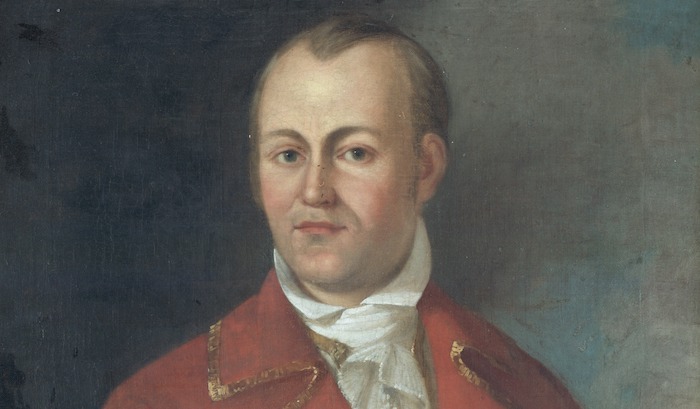
This same period saw a change of colonial governorship. In 1762, France gave its territories west of the Mississippi to Spain. No one in these territories found out until 1764 (the same year the Chouteaus went north), and Spain did not actually take possession of the territory until 1766. Thus, St. Louis almost immediately found itself as the exposed northern tip of the Spanish Empire: a culturally French village hosting a Spanish lieutenant governor who ruled from St. Louis the scattered outposts in what was then called Upper Louisiana or Spanish Illinois. East of the Mississippi was English territory. Of course all of this was in name only. In practice, the Native nations still ruled and ran their own affairs. The activities of the colonial powers in Upper Louisiana were not terribly important to most of the people living there.
But there was one critical intersection of Native and colonial affairs that mattered to Marie-Thérèse Chouteau: Indian slavery. The French government permitted the ownership, purchase, and sale of enslaved Natives. The new Spanish administration, to keep the peace in Upper Louisiana, forbade it. Indian nations raiding one another for prisoners to sell to France, Spain, and Britain destabilized the region. It wasn’t just the raids themselves, it was also the retaliatory raids to recover lost relatives or punish the original raiders. But since slave-owners are people rich enough to afford slaves, the Spanish lieutenant governor in St. Louis opted not to enforce a policy that would have lost him the support of the wealthiest villagers. That list included Marie-Thérèse Chouteau, who received two enslaved Natives of uncertain nationality as a gift in 1768. In practice, the Spanish government enforced a ban on enslaving previously unenslaved adults. Chouteau could keep the two enslaved Indians she already had and any children of theirs, but couldn’t buy any Natives newly captured in raids. The policy did not extend to African slaves, who continued to be imported.
In 1774, René Chouteau, Marie-Thérèse’s estranged husband, had the discourtesy to return from France to New Orleans. He lobbied the Spanish governor to order Marie-Thérèse to come back to him. The governor forwarded instructions upriver to the lieutenant governor in St. Louis. Just as with the slavery issue, the lieutenant governor did not want to anger the powerful woman. Her grown sons had come to dominate much of the fur trade in Spanish Illinois. All her grown children, sons and daughters alike, were married to scions of other powerful frontier families in canny matches she herself engineered. And her not-husband Pierre Laclède, while not as wealthy as his children and stepchildren, remained an influential man. The lieutenant governor dragged his feet until René conveniently died in 1776. I’m not aware of any evidence of foul play in the death, but again – convenient. Marie-Thérèse successfully sued to have what little money her late husband possessed be sent to her in St. Louis.
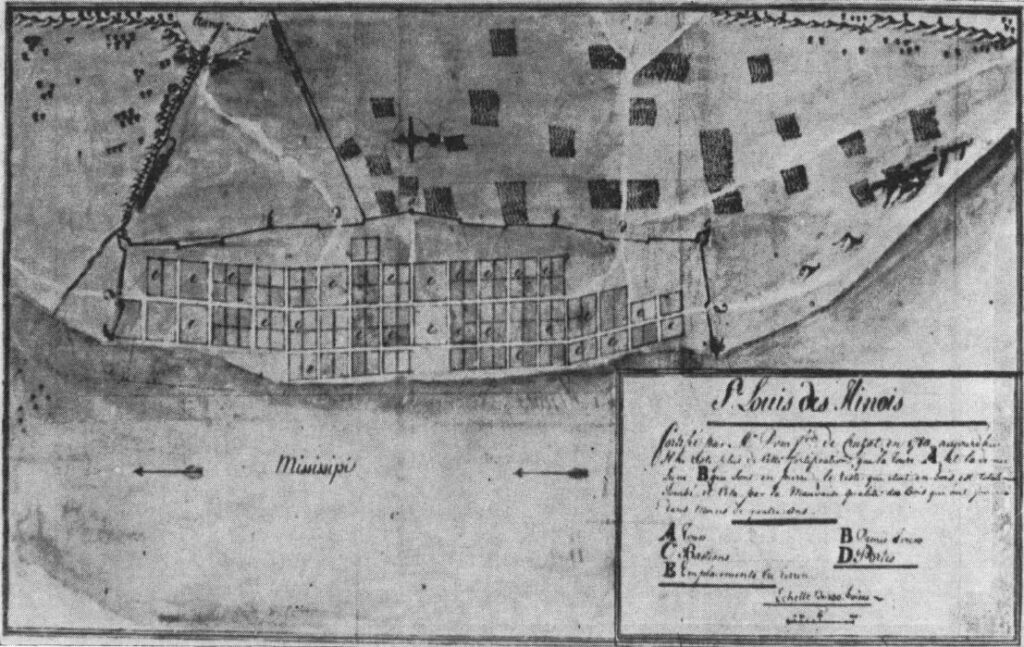
During this time, the American Revolution was roaring in earnest on the east coast. Spanish Illinois maintained close ties with Virginian rebels and sent them gunpowder. It also spied on British defenses and prepared for an opportunity to strike. Britain knew what Spain was up to and didn’t appreciate it. In 1779, British forces chasing an American unit through the Ohio country sent word ahead to St. Louis that if the Americans crossed into Spanish Illinois, the British would pursue. If Spanish forces intervened, Britain would sack St. Louis. Neither happened, but later that year, Spain officially joined the war and British forces marched towards St. Louis.
Against this backdrop of violence and uncertainty, Pierre Laclède – Chouteau’s not-husband – died in 1778. Even after René had died in 1776, Chouteau and Laclède hadn’t married because Laclède was heavily in debt. Had they married, that debt would mar Chouteau’s expanding estates. But the lack of a legal union made it difficult to transfer Laclède’s assets to Chouteau upon his death. Some he willed to her (and their) children with a provision that she be permitted full use of them until her death. Getting the remainder of Laclède’s estate into the hands of Choteau and her children would take cleverness – even as the specter of war hung over tiny St. Louis, population 750.
Remember Gilbert Antoine de St. Maxent, the French merchant who supplied the capital for Laclède to found St. Louis? As Laclède’s partner, he could dispose of Laclède’s estate as he saw fit. It appears he conspired with Chouteau before that happened. Maxent sold Laclède’s assets at public auction. Marie-Thérèse Chouteau bought a large farm and all the enslaved people who operated it. Her son Auguste bought a mill. No competing bids were noted; this was a way for Marie-Thérèse to inherit the property of the man who was effectively her husband, but do it in a way Spanish Catholic law could stomach.
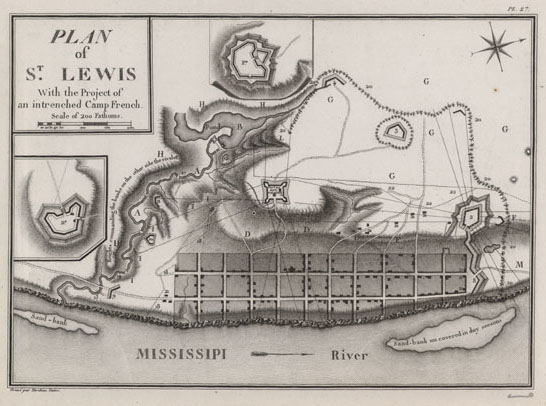
Chouteau and St. Louis survived the American Revolution. Chouteau grew in local power as her investments begat wealth. More of her children came of age, and she arranged smart matches for all of them. Two of her sons were even adopted into Osage chiefly families. (This was after the Spanish, in a failed attempt to cow the Osage, almost entirely exterminated the Missouria, a different Indian nation.) Chouteau was not always nice during this period. In 1785, her son-in-law led the militia in putting down a slave rebellion and in the process killed one of her slaves, a man named Baptiste who had not rebelled. Chouteau sued her son-in-law for six hundred pesos and won.
Chouteau’s influence survived further changes of government. In 1800, Spain sold Louisiana (upper and lower) to Napoleon. In 1803, he sold it to America. France briefly took possession of New Orleans during that period but never had a presence in remote St. Louis. The handoff there was between a Spanish lieutenant governor ostensibly representing France and an American military officer. Chouteau died in 1814, wealthy and related to half the town.
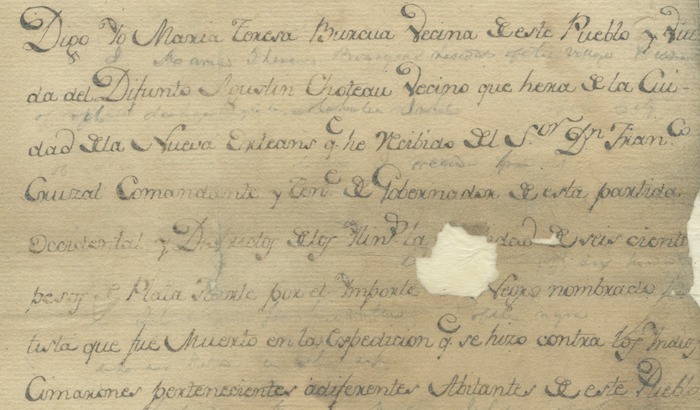
For me, the part of Chouteau’s life that lends itself most to an RPG adventure is her getting her rightful inheritance from Laclède. At your table, a fictionalized version of Chouteau might be working with her late husband’s business partner (Maxent) to pull off just such a coup. But it’s a public auction. Anyone can show up and place a bid, as long as they’re comfortable angering your Chouteau-analogue. If their bid is high enough, it might not even anger your Maxent-analogue, since he gets the proceeds from the auction. If you want Chouteau to be the good guy – a badly-married woman successfully making her may in a man’s world – the surprise bidder might be working for your British-equivalents, trying to sow dissent in the rival village. If you want Chouteau to be the bad guy, the surprise bidder is representing the families of the enslaved people who are part of the estate. The bidder is trying to buy them so he can free them.
Regardless of which fictional side you make sympathetic (Chouteau or the surprise bidder), there’s ample room for the PCs to get involved. Let them stumble onto the fact that an unexpected bidder will appear at the auction. A lot of money is at stake and Chouteau is politically influential. Greedy or power-hungry PCs will probably want to learn more to insert themselves appropriately. They can investigate to learn more about the surprise bidder. Then they need to pick a side and come up with a clever way to scuttle their opponent at the auction. Do they block their opponent from reaching the auction? Do they outright kidnap them? Do they use blackmail? Do they burn the money their opponent would use to bid? Let your players brainstorm crazy solutions and then improvise the rest of the session from there.
Another, less fleshed-out adventure hook is apparent in Chouteau’s life: serving as the fixer who makes her reappeared husband René not a problem anymore.
Even setting aside the adventure hooks, Madame Chouteau is a great inspiration for an NPC. She’s powerful and has her fingers in every pie in town – yet her power comes not through military might or blackmail or religious or political legitimacy, but partly through her wealth and mostly through her family. That’s a really fun and relatable trope that might not see much use at your table, so it’ll feel fresh and novel to your players. Plus, a power-broker on the frontier is just not something your players are likely to expect!
Check out Shanty Hunters, my RPG about collecting magical sea shanties in the year 1880!
Sources:
Lion of the Valley: St. Louis, Missouri, 1764-1980 by James Neal Primm (1998)
Marie Thérèse Bourgeois Chouteau (1733–1814), The State Historical Society of Missouri







